Carrots are a plant with a thick, fleshy, richly colored root, which grows underground and has green leaves that appear above ground. Although they are commonly associated with the color orange, in reality, carrots grow in many different colors, including white, yellow, red, or purple.
Carrots belong to the Apiales family, which also includes parsnips, dill and cumin. More than 100 different varieties of carrots are known, which differ in size and color. Carrot roots have a crunchy texture and a sweet, minty flavor, while its green leaves are fresh-tasting and slightly bitter.
The history of carrots
Carrots' noble ancestry can be traced back thousands of years back, with their cultivation originally beginning in Central Asia and the Middle East. Carrots at that time looked quite different from the types we know today. They were deep purple in color ranging from lavender to dark eggplant. This coloring is due to the pigments of the nutrients anthocyanins, that were contained in these carrots.
Yellow colored carrot varieties first appeared in Afghanistan and after further processing evolved into the varieties we know today. Both types of carrots were distributed throughout the Mediterranean region and were used by the ancient Greeks and the Romans for medicinal purposes.
Carrots were not a popular vegetable in Europe, until the Renaissance. Subsequently, they were also distributed in the North American colonies. Thanks to their increased popularity in the early 1800s, carrots became the first vegetables to be canned. Today, the United States, France, England, Poland, China and Japan are among the largest producers of carrots.
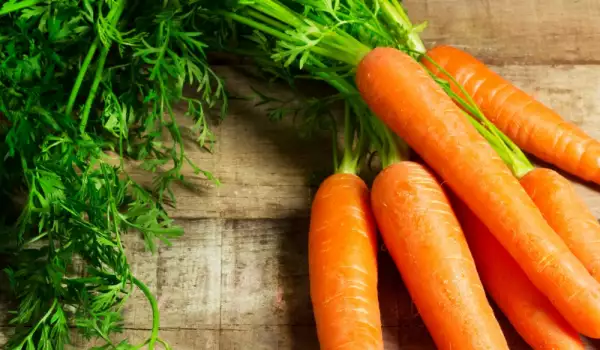
Composition of carrots
Carrots contain a large amount of leticin and pectin.
Carrots are an excellent source of provitamin A. They are a very good source of vitamin C, vitamin K and dietary fiber. 1 cup or 122 grams of carrots contains 52.46 calories, 1.26 grams of protein and 0.23 grams of fat.
Carrots are also rich in vitamins B1, B2, PP. They contain many enzymes, terpenes, essential oils and minerals - sodium, magnesium, phosphorus, potassium, iodine, iron. Carrots have copper and manganese.
Choosing and storing carrots
When choosing carrots it should be kept in mind that their roots should be hard, smooth, relatively clean and brightly colored. The deeper the orange color of the carrot, the higher the beta carotene content. Carrots that have too many cracks or are soft should be avoided. If carrots are sold without their green tops, the color at the end of the stem is indicative of their age and those with a dull color should be avoided. Since the sugars are concentrated in the core of carrots, usually, those with a large diameter will have a larger core and be sweeter.
To preserve the freshness of carrots, it is necessary to reduce the amount of moisture they lose. Therefore, it is necessary to store them in the coldest part of the refrigerator in a plastic bag or wrapped in a paper towel, which will reduce condensation. This way, the carrots will stay fresh for about two weeks. They should also be stored away from apples, pears, potatoes and other fruit and vegetables that produce ethylene gas, as it will make them taste bitter.

Culinary use of carrots
Carrots are a very healthy and tasty vegetable and they are widely used in cooking. They can be eaten raw, but before that they must be washed and peeled. Carrots are part of many salads - the most famous of which is cabbage and carrot salad. Carrots are added to many vegetable and meat dishes, and their taste is irresistible.
Carrots are also used in a number of freshly squeezed juices - both vegetable and fruit. In traditionally prepared canned pickles, carrots occupy a place of honor.
It is best to boil the carrots and stew them, since these two culinary methods guarantee the maximum extraction of carotene. Carrot juice can be combined with other vegetable and even fruit juices, which will only enhance and complement its taste.
Combinations with beetroot juice, apples, oranges, cucumbers, ginger, peppers, tomatoes, spinach, cabbage, parsley and celery are extremely suitable. Besides carrot salad, you can also make a great homemade carrot cake.
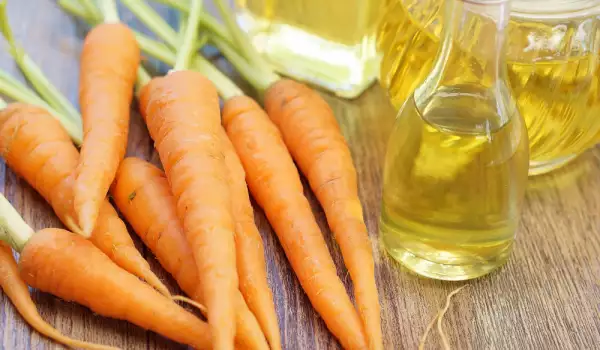
Carrot Benefits
Research shows that foods high in carotenoids lead to a reduced risk of heart disease;
The beta carotene contained in carrots helps to protect your vision and especially night vision. After beta carotene is converted to vitamin A in the liver, it travels to the retina, where it converts it to rhodopsin, a purple pigment that is needed for night vision.
Carotenoids are also beneficial in terms of optimal health - taking a high dose of carotenoids is associated with a 20% reduction in the risk of postmenopausal breast cancer, as well as up to a 50% reduction in the risk of bladder cancer, cervical cancer, prostate, colon, larynx and esophagus.
Research shows that physiological levels as well as dietary carotenoids may be inversely related to insulin resistance and high blood sugar levels.
The falcarinol content in carrots helps protect colon health and reduces the risk of cancer;
Research shows that both smokers and passive smokers need to eat foods rich in vitamin A, such as carrots, to maintain their health, because a carcinogen in cigarette smoke called benzo(a)pyrene causes vitamin A deficiency.
Vitamin B helps with good memory and ability to concentrate. It supports the body in the daily fight against stress. Vitamin E is another important component of carrots that fights anemia.
Regular consumption of grated carrots, flavored with butter and cream, as well as carrot juice increases the body's defenses against infections.
The cellulose contained in carrots helps to maintain a slim figure, promotes weight loss and relieves the body of harmful toxins.
The vegetable is very good for diabetics who suffer from vitamin A deficiency. Absolutely all parts of the carrot are health, even the green leaves and roots. Carrots are distinguished from other vegetables by their increased content of potassium salts, which are vital for problems with the heart, kidneys and blood vessels.
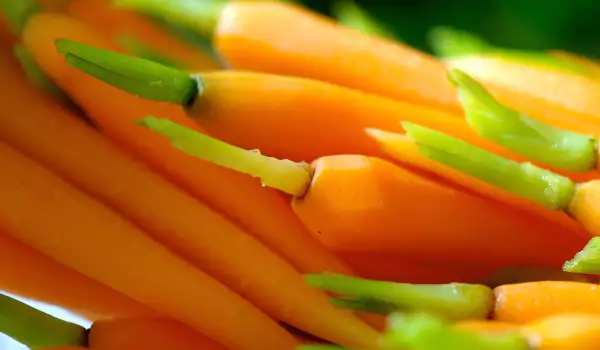
Beta carotene in carrots has another very important role - it protects the skin from premature aging and protects it from harmful UV radiation. It is absolutely safe because the unused part of it is eliminated through the metabolism. In case of sunburn, it is recommended to apply a paste of fresh carrot to the affected area.
Carrot juice is also very good for children, because it supports their mental and physical development. It helps to stimulate the blood supply, protein synthesis and saturates the tissues with a sufficient amount of oxygen.
Folk medicine with carrots
It is believed that freshly squeezed carrot juice is an exceptional remedy in folk medicine. It is assumed that one of the reasons for the appearance of allergies is weak immunity and regular intake of the juice helps to strengthen the body's defenses.
In folk medicine, carrot juice is used to alleviate skin problems, eye pain and glandular dysfunction. A poultice of grated carrot is applied to infected wounds and ulcers. For diarrhea and bacterial infections, consumption of carrot soup is recommended to stop the growth of bacteria.
According to popular belief, chewing carrot flowers can help with epileptic seizures. Carrots can be used in the form of tea, decoctions, poultices and porridges.
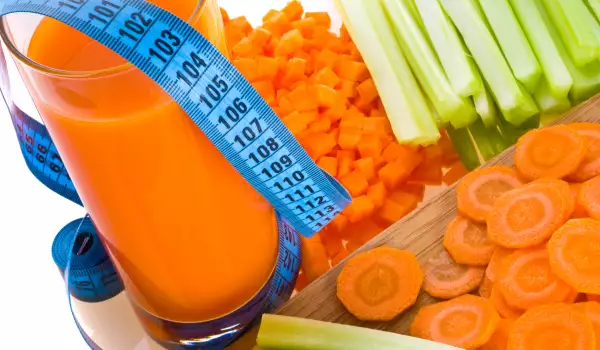
Harms from carrots
Excessive consumption of carotene-rich foods such as carrots can lead to a condition called carotoderma, in which the palms or other parts of the skin develop a yellow or orange color. Excessive consumption of these types of foods can also reduce the body's ability to convert these foods into vitamin A.
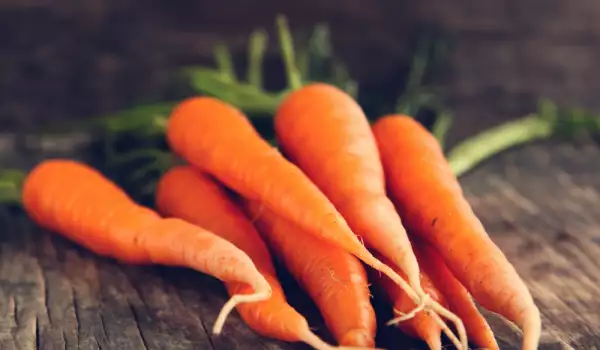

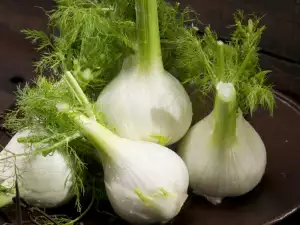



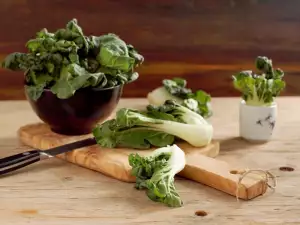







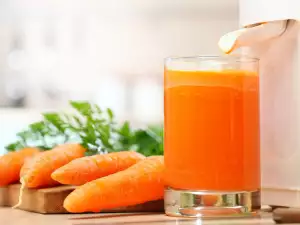
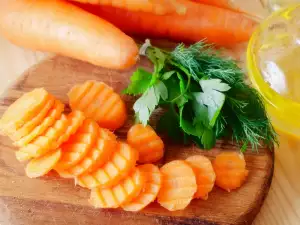




Comments